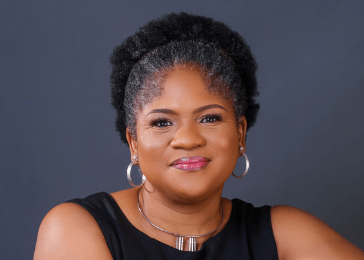Dr Ebere Okereke: The future of healthcare in Africa after USAID

The retreat of the United States from global health has left more than a funding gap; it has exposed the weakness of a system that leaned too heavily on a handful of donors. For decades, Washington was the single largest supporter of the World Health Organization, the Global Fund and Gavi, the vaccine alliance.
USAID underpinned national HIV responses, immunization programmes and maternal and reproductive health initiatives across the African continent. That era is unarguably over. Nigeria alone has lost more than $600 million in health funding, equivalent to over one fifth of its entire annual health budget. Botswana, a middle-income country, depended on US sources for a third of its HIV response before those funds were withdrawn.

European economies have followed the same trajectory. France announced an 18 per cent cut to official development assistance in its 2025 budget. Germany’s draft budget confirms further reductions. And the Netherlands has withdrawn its GNI-linked target. EU member state aid, as a whole, declined in 2024. This represents clear structural contraction. And these Official Development Assistance (ODA) cuts come at a time when many African countries are also experiencing economic recession, compounding the pain.
Indeed, the pain is being felt most acutely in Africa, where health systems had been built on external support for decades. The question now is: will African governments allow the cycle of dependency to continue? Or can they use this moment of disruption to reassert sovereignty over their health systems?
Progress on African health sovereignty
It is important to acknowledge that African leaders were already debating these issues before the 2025 USAID withdrawal.
Nigeria’s Health Sector Renewal Initiative, launched in 2023, brought federal, state and partner resources into a single framework with one plan and one budget, signaling a determination to shift coordination back to Abuja. The government also introduced a sugar-sweetened beverage tax in 2021 and is considering higher rates to expand the fiscal space for health.
Ghana followed with a 20 per cent excise tax on sugary drinks in 2023. Kenya legislated the replacement of its health insurance fund with a broader Social Health Insurance Fund to expand access and restructure purchasing of essential products. These are domestic fiscal choices that reflect a recognition that aid cannot remain the foundation of health financing.
At the Accra Health Sovereignty Summit in August 2025, African heads of state and ministers gave political expression to this shift. They called for ‘health without aid’ and committed to mobilizing domestic resources, pooling procurement and investing in regional manufacturing of medicines, vaccines and other health products.
As Nigeria’s Coordinating Minister of Health and Social Welfare, Muhammad Ali Pate, said at the meeting, ‘we cannot build healthier populations purely on the generosity of other nations. It is time to define our path rooted in sovereignty and aligned with local needs’.
Institutions already exist that could support this direction if they are properly resourced. The Africa Centres for Disease Control and Prevention (Africa CDC), established in 2017, demonstrated its value during the COVID-19 pandemic and again in 2023 when it declared a Public Health Emergency of Continental Security in response to the mpox outbreak in the Democratic Republic of Congo.
The withdrawal of the US has exposed the brittleness of the old model. It has also created an extraordinary opportunity.
Africa CDC is creating a platform for pooled procurement and leading efforts to build the continental ecosystem for manufacturing health products. The number of WHO Maturity Level 3 (ML3) national regulatory authorities, essential for a pharmaceutical manufacturing industry, has grown exponentially from just two in 2021, to nine by September 2025.
The African Medicines Agency, formally launched in 2021 and now with its first director general in place, is advancing regulatory harmonization that is essential for building viable regional pharmaceutical production. These institutions represent a continental capacity that did not exist a decade ago.
New health patrons
Yet the temptation remains for African governments to fill the vacuum with new patrons. China has pledged an additional $500 million to the WHO, financed the Africa CDC headquarters, and continues to link its ‘Health Silk Road’ initiatives to African vaccine and medicine production. During COVID-19, Beijing delivered vaccines to countries such as Zimbabwe and Equatorial Guinea, and at the Forum on China–Africa Cooperation it has promised investment in health manufacturing.
The UAE has also entered the space. Alongside partners, the UAE launched the $500 million Beginnings Fund. The UAE has traditionally shown a preference for channelling their assistance through national governments. This is welcome. Alongside Qatar and Saudi Arabia, it has backed the Islamic Development Bank’s Lives and Livelihoods Fund, blending grants and concessional loans for the poorest countries in Africa and Asia.

Health assistance could be seen as becoming more overtly applied as a geopolitical bargaining tool.
Without alignment with national health planning and domestic prioritization, these new donors could reproduce the same vulnerabilities that exist today. The donors may change, but the concern about externally driven priorities remains legitimate.
Philanthropy is sometimes presented as a softer alternative. The Gates Foundation has pledged $1.6 billion to Gavi for the 2026–30 period and continues to be one of the largest donors to the Global Fund. It has also announced new investment in women’s health research. Wellcome and the Novo Nordisk Foundation are also investing in epidemic preparedness and health research.
Philanthropy can stabilize essential programmes at a moment of fiscal stress, but it is not accountable to African citizens. Too often, philanthropic funding bypasses national systems and therefore reinforces external influence rather than countering it.
Philanthropies also risk recreating or maintaining ODA, driven by parallel systems that are widely acknowledged to be inefficient.
Under-representation
A deeper problem is that African states remain structurally under-represented in the governance of global health institutions. The Lusaka Agenda, launched in 2023, called for donor funds to be channelled through national systems and aligned with government priorities.
WHO, Gavi and the Global Fund have all promised reforms in this direction. In practice these have been changes in tone, not in power. The boards remain dominated by donors. Agenda-setting is not in African hands. Until that shifts, even the best designed national reforms will be constrained by global institutions that continue to prioritize donor preferences.
This moment of disruption offers an opportunity to change course. African countries know the steps that are needed. Legislation to create minimum health spending can lock in health as a budgetary priority. Increases in taxation remain unpopular, but health taxes such as those on sugary drinks could be more acceptable and broaden the fiscal space for health provision.
Want to chase the pulse of North Africa?
Subscribe to receive our FREE weekly PDF magazine














